Despite Ridicule & Attacks, 33-YO Karnataka Man Adopts 55 HIV+ Kids
“Many with young HIV+ kids came to our door. I didn’t want to send anybody back. In the next 6 months, I had 26 children join the family. By 2010, I was a father to 55 children!”
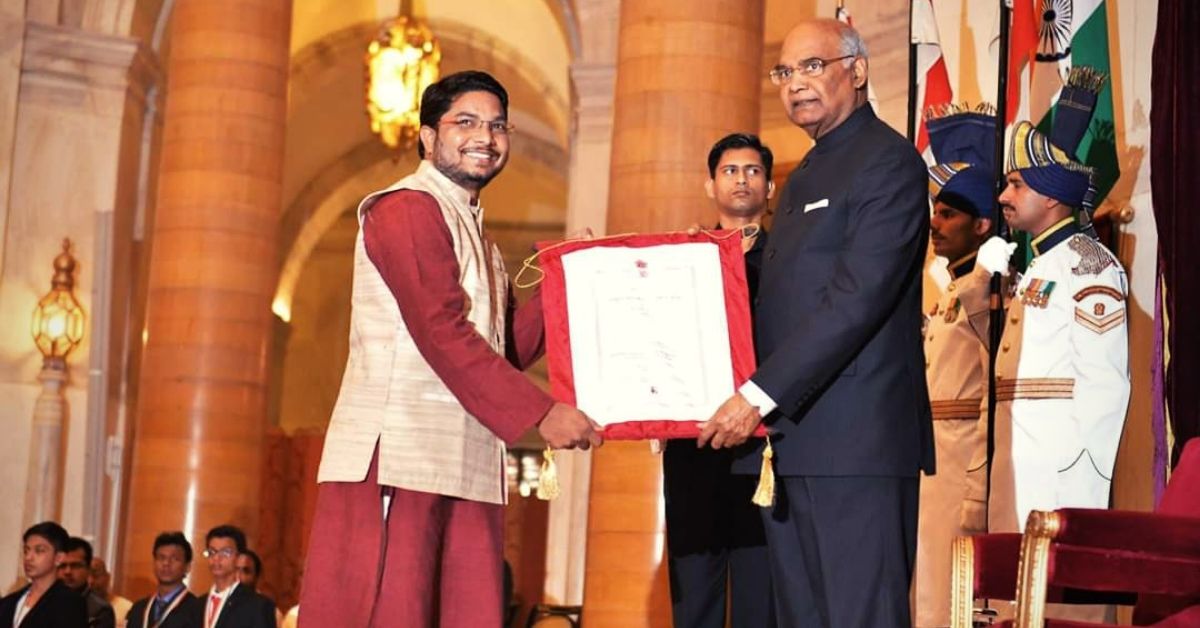
A young man in his twenties hurries through the pillared corridors of a hospital, dodging the crowd of people, frantically searching for the right room. The scent of the floor cleaner mixed with medicines saturates the air, as he moves from one room to another. His mind clouded with the telephone conversation with the doctor, a few hours ago.
‘He is in critical condition. We are doing our best, but he may not survive beyond two more days,’ he recalls the doctor’s ominous words.
Brushing the memory off, he proceeds to the next room to find Rupesh quietly lying down. Burning with fever, Rupesh breathes laboriously to gather enough strength to acknowledge his visitor. The man, overwhelmed with concern, comes closer and Rupesh fights to open his eyelids, albeit halfway. As the silence engulfs the room, a few words slip through Rupesh’s frail mouth, ‘Please take me home’.
It was at this very moment, that man—Mahesh Jadhav’s—life changed forever. A 21-year-old engineering graduate, he had visited the District Hospital of Belagavi, Karnataka, two years back, with his hands full of gifts and fruits, bearing an intent of spreading happiness among the patients, on the occasion of his friend’s birthday. But, in return, he met Rupesh, a four-year-old boy who was abandoned by his relatives for being HIV positive.
Join #ProjectDreamSchool, an initiative by The Better India to sponsor the education of 32 children studying in government, semi government-aided and private schools in Bengaluru. Join us in helping raise funds to support the education of these students.
Unable to view the above button? Click here
“I remember the day when I met Rupesh in the Children’s Ward, back in 2008. The doctor told us about his mother who was HIV positive and on her deathbed. There was no one to take care of him, as his father had also passed away due to HIV and his relatives had shunned him. With my limited knowledge about HIV Aids, I was shocked at how an innocent kid was HIV positive at birth and had already seen the worst of people,” recalls Mahesh, while in conversation with The Better India (TBI).
His chance encounter with Rupesh, 12 years ago, marks the beginning of an extraordinary journey that has had a tremendous effect on the perception toward HIV positive individuals and Child Welfare in India. And it was due to this commendable body of work, that in 2017, Mahesh became one of the youngest individuals to be recognized by the government with a National Award for child welfare.
The Beginning
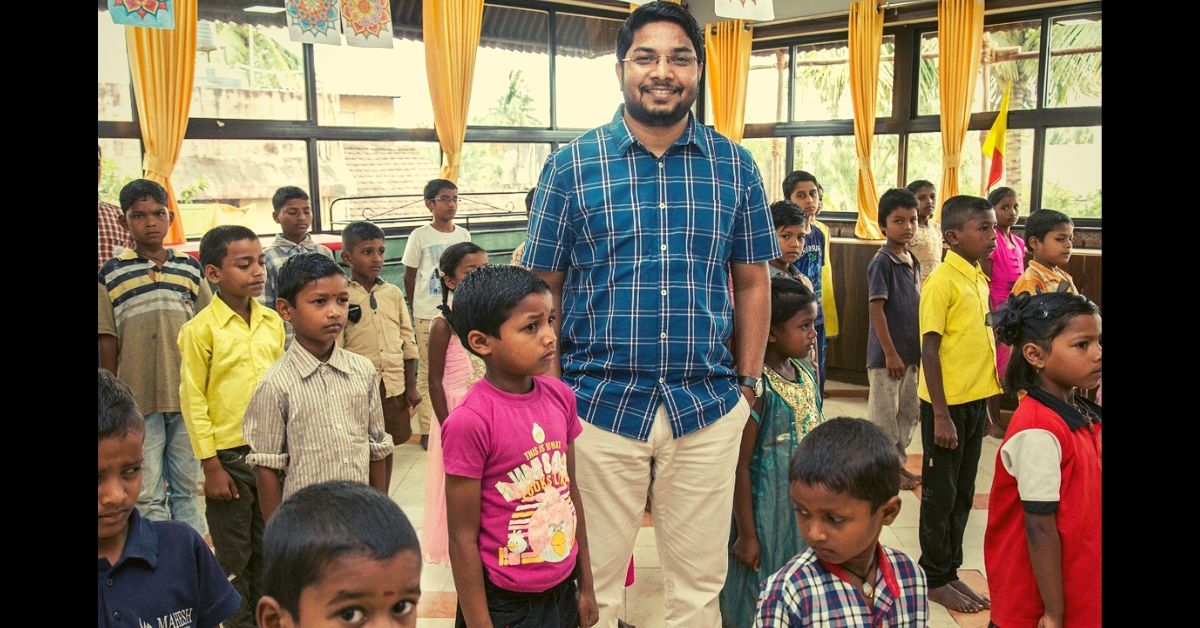
It all began in April 2008, when a chance meeting with Rupesh left Mahesh deeply moved. He began to frequent his visits to the hospital, from once a month to once a week, to take care of the child.
And thus, two years passed.
Then came the cruel year of 2010, when 6-year-old Rupesh lost his mother. At this difficult point in the little boy’s life, Mahesh became his pillar of support and began approaching orphanages and NGOs that could give the child shelter.
Sadly, every door he knocked was shut on his face with a harsh ‘No’. The reason? Rupesh’s medical condition. A result of the lack of awareness and the rampant ignorance regarding HIV that bred in the district. Such evil amounted to the absolute ostracisation of the individuals living with HIV, including children.
“We eventually went to the district commissioner for help who managed to get Rupesh into a hostel. But, he had to be returned to the hospital just within 5 days. The hostel authorities had informed all the kids that Rupesh was HIV positive and he was then shunned by all. He was not even allowed to eat with everyone. His experience there deeply hurt the child and after a few days of his return, he fell extremely ill. That is when the doctor informed me about his critical condition and told me that he would not survive beyond 2 days,” shares Mahesh.
Devastated and worried, Mahesh went to meet Rupesh, and on his request, decided to bring him to his home.
“I had to convince the hospital authorities to allow me to take Rupesh. I didn’t know what I could do, but at least I wanted him to be happy. Back at home, although initially people objected due to lack of awareness, later after I explained and clarified the misconceptions around HIV, they supported my decision to take care of Rupesh. My mother was especially a great support and with her help Rupesh started to slowly get better,” he says.
With home-cooked food, proper medication and loads of love from Mahesh and his family members, Rupesh revived.
But another big struggle was looming over them.
“I had decided to adopt him and the story about me bringing him home somehow reached the media and a report got published in a national daily. Owing to that several others with young HIV positive children began to come to our door seeking help. I didn’t want to send anybody back and did as much as I could. In the next 6 months, I had 26 children join the family. By 2010, I was a father to almost 55 children!” he exclaims.
Roadblocks to Fatherhood
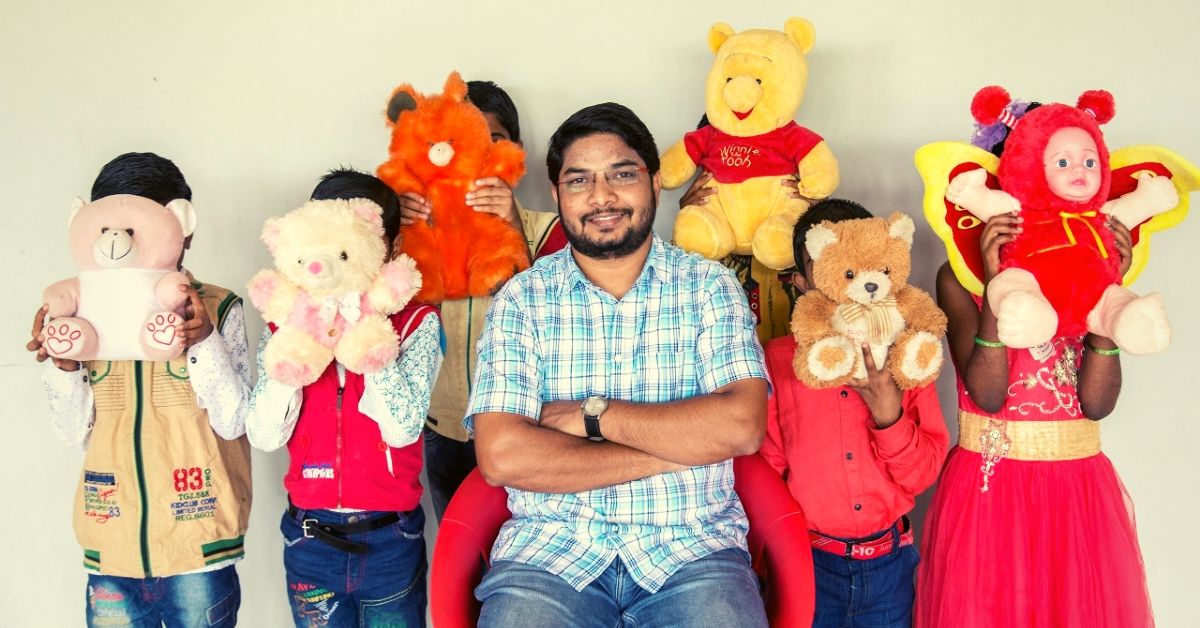
Though, Mahesh was unofficially a father to all these 55 kids but he soon realised that keeping so many kids in his home without proper legal documents might cause problems and thus began to work to establish the Mahesh Foundation.
“After graduation, some of my friends and I had started a software consultancy firm and I continued to work there, while also trying to set up the foundation. I approached the child welfare committee seeking proper registration and after a lot of to and fro, finally in 2012, got the license for a children care home. But finding a place on rent was very difficult as everyone rejected us once they heard that the kids were HIV positive. However, after 6 months of searching, a couple who were moved by an article written on me in a newspaper approached and offered their empty house,” shares Mahesh.
Once their home was sorted, the next big hurdle was to get them education. The first obvious choice for Mahesh was to admit them into a government school. But, like many previous encounters, this move was also met with resistance as the school authorities denied the kids admission based on their medical condition. Once again, Mahesh sought the help of higher government officials to force the school to take in his kids.
But, in March 2013, a cruel and discriminatory incident shocked the state.
“It was their final exams and the school decided to expel them due to HIV. They did not want other kids to sit with them in an enclosed space for that long. When I heard about it, I was furious and went to speak to the school authorities. Instead of having a dialogue, they began to manhandle me and even beat me. The school had some politically powerful people on the board who used their influence with the police to get me arrested as well. According to them, I was spoiling the name of the district by taking care of HIV positive kids,” he adds.
Fortunately, the same day, the then SP of Belgaum district made his visit to the police station and took stock of the situation. After investigation, he released Mahesh and penalised the officials for arresting him without a warrant or FIR. This is how the press came to know about the matter of how the police and a govt school body had harassed a local social worker.
“It had become a huge issue thanks to the media, and the Education minister had asked for the teachers to be suspended. But, I didn’t want that. The problem arose because of lack of awareness, both on the part of the teachers and parents of other children, who protested my kids’ presence in the school. So to tackle it, I decided to hold a 2-hour-long programme. Parents of more than 600 students attended the session and that began to slowly change the situation and help build a more inclusive and sensitive environment for my kids,” he explains.
In the next eight years, Mahesh, under the foundation, continued to conduct such sessions, owing to which more than 38,000 HIV positive individuals including 2,800 children were finally registered with the local govt. hospital so that they can start receiving their treatment. Most, in fear of stigma, do not come for treatment or register their names. He adds that registration is the first step towards a better future for them, as it ensures their free medication from government hospitals regularly.
Ancestral home to a Ray of Hope
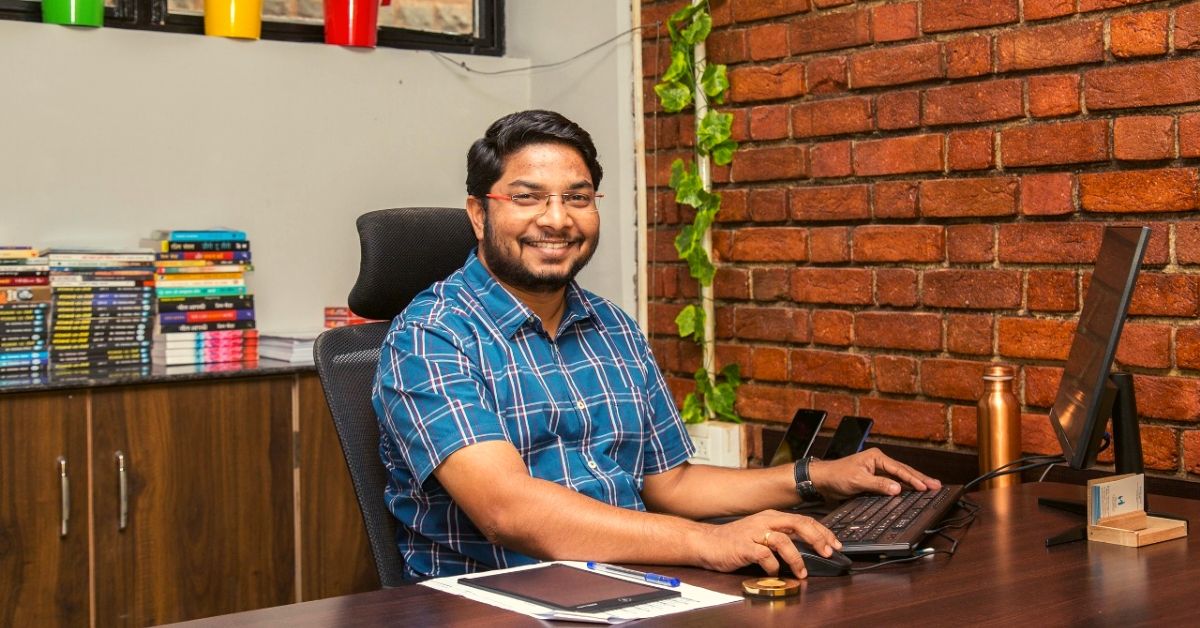
For almost 8 years, Mahesh’s children continued to live in the rented house, while he relentlessly tried to find a government space for a hostel. Speaking to TBI, he adds that each time an influential person heard about the foundation’s work they praised him, but nobody came forward to really help in this matter.
Meanwhile, the residents of the locality where the hostel was situated, began to create problems for the kids and protested their presence there.
Beyond such operational challenges, Mahesh shares how he also had to combat continuous resistance from the society and his own relatives, for working in this area.
“Many thought I was HIV positive because I was working on this. Many relatives and friends cut ties with me because of it. But, my mother and brothers stood by me through thick and thin. Everyday they would see me struggling to find these children a proper home, and one day they came up with the idea to donate our ancestral home of 5,000 sq feet for the kids and the foundation. I was hesitant but they insisted. My family now stays in a rented house instead.” he shares.
Hence with his own savings and some funds gathered over all these years through crowdfunding, he built a 4-storey building in 2018 in Kanbargi village near Belagavi, that also housed a primary school called Utkarsha Learning Centre for the children between the ages of 6-11 years. A year later, in the same building, he started a hostel for his kids called Asha Kiran.
His dream to create a safe and positive space for his kids was now a reality.
“Although, due to my continuous efforts, the district school authorities couldn’t throw my kids out. But, over the years subtle discrimination and ostracisation continued. I feel that the current curriculum in schools is not holistic and I wanted to bridge that gap in my school. Plus, I believe that art/sports/theatre or skill programmes not as extracurriculars but proper subjects of equal importance could help these kids cope better Plus the curriculum taught at the schools was not holistic enough. I wanted to provide a more skill-based curriculum and so at Utkarsha we developed a special curriculum that focused equally on art, culture, music, dance, theatre, sports, as it did with traditional subjects like science and mathematics, history, etc,” he adds.
He quips that the intent of Utkarsha was to give equal opportunities to children who are usually discriminated against. Hence, he decided to open its doors to underprivileged children from nearby slums as well, free of cost. Today, the school has over 84 students between the ages of 6-11 years from Class 1 to 5.
But inclusivity is not the only aspect of Utkarsha that is unique.
More than just a school – Utkarsha Learning Centre
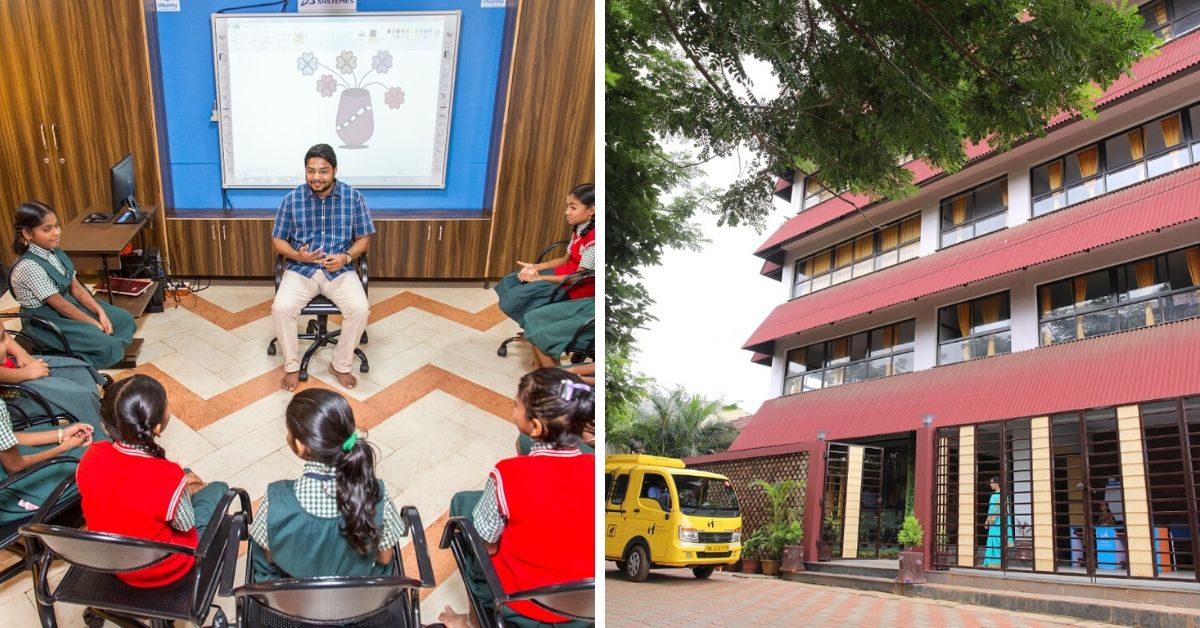
Built in an eco-friendly manner employing traditional architectural techniques that use construction materials like clay, straw, etc over cement and plastic, the school is a stellar example of a sustainable and socially responsible space. “We have installed a 20 kilowatt solar power grid which powers 150 computers, 180 LED lights and 4 air conditioners. Also, I wanted to use this space to transform the attitude of the community towards HIV positive individuals. The first step was to educate underprivileged families about HIV so that they allow their kids to study here. The next step was to open our doors for other kids from the community, so that they could use our infrastructure and advanced facilities after school hours to enhance their education.”
Today, after almost a decade of existence, all of Mahesh’s kids are doing well. While some are preparing for UPSC, studying in colleges, others are even working in various companies. Even Rupesh, now 16, has been doing very well.
“People thought I was too young for such a big responsibility and that the foundation would shut in just two years. Well, becoming a father of 55 kids was indeed big but here we are after almost a decade and things have only progressed. When I look at Rupesh, my heart fills with pride. A boy who was given just two days now is thriving, just like all my other kids. Hence, it all has been a privilege!” concludes Mahesh with a smile.
(Edited by Saiqua Sultan)
Like this story? Or have something to share?
Write to us: [email protected]
Connect with us on Facebook and Twitter
If you found our stories insightful, informative, or even just enjoyable, we invite you to consider making a voluntary payment to support the work we do at The Better India. Your contribution helps us continue producing quality content that educates, inspires, and drives positive change.
Choose one of the payment options below for your contribution-
By paying for the stories you value, you directly contribute to sustaining our efforts focused on making a difference in the world. Together, let's ensure that impactful stories continue to be told and shared, enriching lives and communities alike.
Thank you for your support. Here are some frequently asked questions you might find helpful to know why you are contributing?


This story made me
-
97
-
121
-
89
-
167














